1. All in the Family
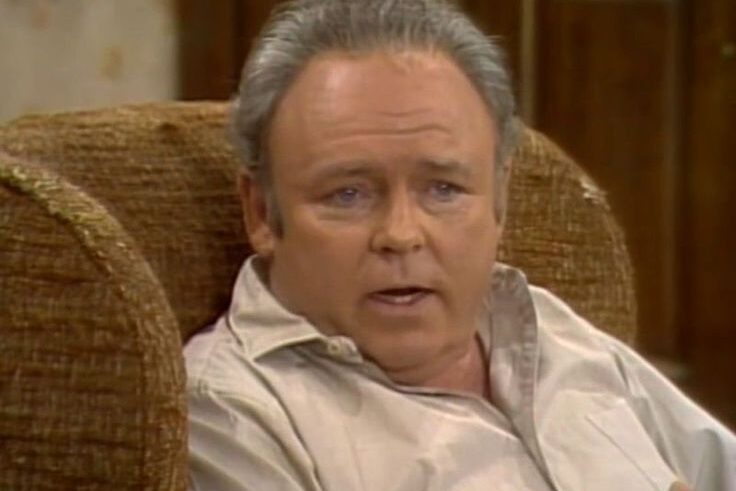
Norman Lear adapted it from a British show, and CBS almost didn’t air the first episode in January 1971 because it featured Archie Bunker, a loud, bigoted working‑class man, and even mild sexual references raised eyebrows. What made it controversial wasn’t just Archie’s language, but how it forced viewers to confront racism, sexism, and class differences head‑on. CBS even added a disclaimer before the premiere, warning that the show would challenge viewers, a bold move for its time.
Yet the gamble paid off. Despite early protests, it became the top-rated show in the U.S. from 1971 to 1976. Critics were divided, some praised it as satire, others accused it of secretly endorsing prejudice, but no one could deny it shook up sitcom norms. Without “All in the Family,” future shows tackling tough topics may never have dared step forward.
2. Married… with Children
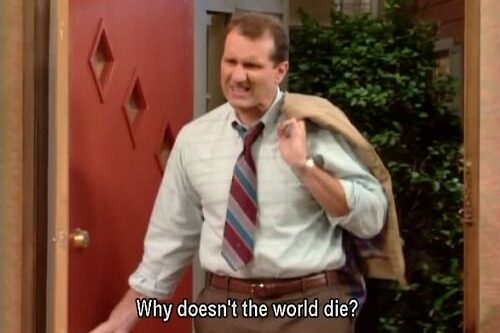
When Fox launched this sitcom in 1987, it was unapologetically rude. Al Bundy’s crude remarks and the show’s adult jokes provoked outrage from parents’ groups and advertisers who said it was sexist, vulgar, and anti‑family. One infamous episode about bras and implied nudity led a mom named Terry Rakolta to collect advertiser boycotts, 42 companies pulled their ads, and Fox moved the show to a later time slot.
However, the backlash fizzled fast. Fox toned things down slightly, advertisers came back, and the show grew into a cult hit that lampooned sitcom conventions. It set the stage for cynically comic family shows by showing American TV could poke fun at the idealized nuclear family, and survive.
3. The Simpsons

From its debut in 1989, Bart Simpson’s mischievous catchphrases (“Eat my shorts!”) triggered school bans and alarm from officials who said the character was promoting disrespect and anti‑authority values. Merchandise was even banned in some districts. Many worried “The Simpsons” would erode parental influence by glorifying juvenile rebellion.
Still, the show built a devoted fanbase that continues today. What once sparked concern now reads like affectionate nostalgia, Bart’s defiance was always more mischief than menace, and the show balanced it with satire aimed mockingly at adults. But in its early years, it definitely made a splash.
4. Roseanne
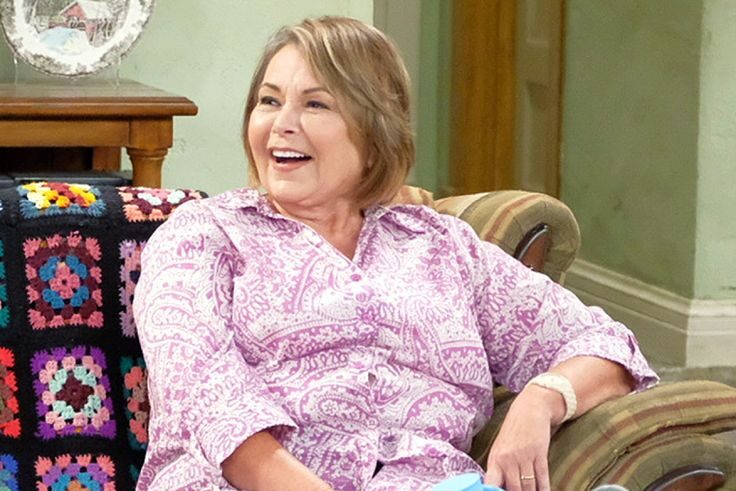
This sitcom was praised for its honest depiction of working‑class life, with a mother who swore, kids dealing with real issues, and political fights at the dinner table. But on‑screen plotlines (like an unplanned pregnancy) and off‑screen rants (by Roseanne Barr herself) often caused public backlash. Viewers were torn, some applauded the raw, real representation; others said it was too crude, too controversial, and at times morally questionable. Even during its revival, Roseanne’s outspoken views sparked heated debates about free speech versus offensive content. Love it or hate it, the show never left anyone indifferent.
5. Ellen
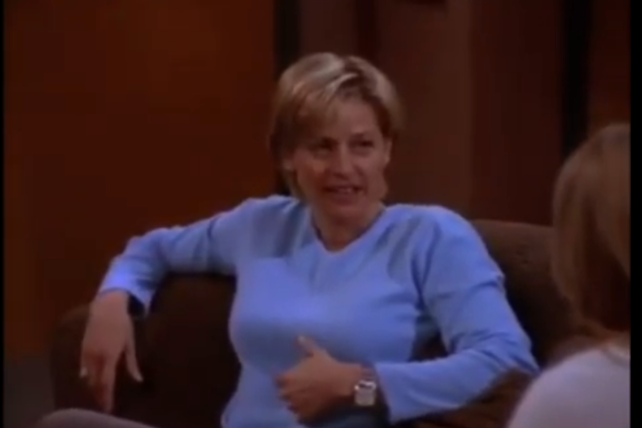
On April 30, 1997, Ellen aired “The Puppy Episode,” where Ellen Morgan came out as gay, making it the first lesbian lead on American network TV. It was historic, television’s first lead to do so. But it triggered advertiser boycotts, complaints from conservative groups, and fears that the network would pay the price. Her announcement made headlines worldwide.
Despite the backlash, network executives stood firm, and Ellen became a cultural touchstone, paving the way for future LGBTQ+ representation. The show didn’t last long after that season, but its impact was lasting: it changed audiences’ expectations and opened doors.
6. Maude
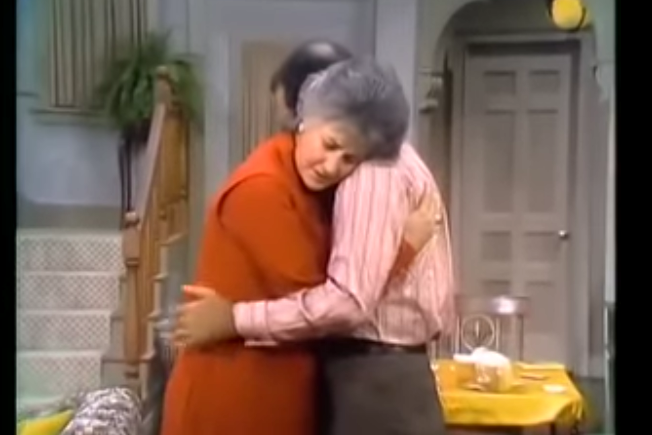
Maude, created by Norman Lear, tackled abortion head‑on in November 1972. In the two-part episode “Maude’s Dilemma,” its 47‑year‑old protagonist decides to terminate an unexpected pregnancy, a groundbreaking storyline aired two months before Roe v. Wade became law. CBS aired it without incident initially, but when the same episode reran in August 1973, backlash hit hard: about 39 stations pre‑empted it, and religious leaders protested vigorously. Many viewers simply weren’t ready to see abortion addressed so openly on their TV screens.
What’s more, this controversy reached beyond viewers, Norman Lear himself reflected that the uproar really started during the rerun, when conservative voices seized on it to rally against what they saw as an attack on values. The episode remains a watershed moment in TV history, opening the door for more frank discussions of reproductive rights decades later.
7. Soap
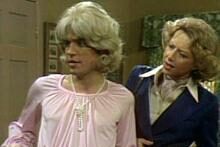
In 1977, Soap arrived on ABC full of scandalous potential, gays, infidelity, impotence, and more, which drew fierce resistance before a single episode hit the screen. Religious groups led by Donald Wildmon and others launched letter-writing and boycott campaigns, and conservative activists pressured ABC affiliates to block the show. Even gay rights organizations criticized the show for portraying Jodie Dallas, one of TV’s earliest recurring gay characters, in what they feared might feel stereotypical or mocking rather than respectful.
Despite the controversy, ABC stuck with it. Many affiliates initially refused to air the pilot, but public interest and curiosity drove ratings once it finally aired. The show’s success proved that controversy could boost popularity, and it forced networks to rethink how they presented LGBTQ+ characters and adult themes in sitcoms.
8. NYPD Blue
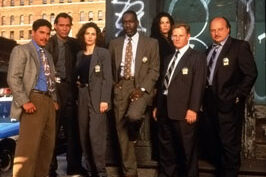
When NYPD Blue premiered on ABC in September 1993, it shattered network norms with explicit language, partial nudity, and raw storytelling. About 30 affiliates refused to air the premiere, while Christian groups demanded its cancellation. A 2003 episode titled “Nude Awakening” showed brief nudity and drew an FCC indecency fine of $1.4 million, though this was later overturned by an appeals court in 2011.
Despite the storm, NYPD Blue kept climbing, lasting 12 seasons and winning multiple Emmys. The show’s push into grittier realism helped bridge the gap between safe network fare and the edgier cable dramas to come, signaling a new era of what television could show and say.
9. South Park
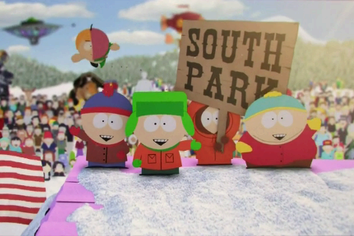
South Park debuted in 1997 and quickly became known for skewering everyone and everything, religions, politicians, celebrities, social issues, often within the same episode. Its irreverent satire sparked outrage campaigns, attempted bans, advertiser boycotts, and even censorship in some countries. Episodes touching on Islam, Scientology, or the 9/11 attacks have prompted especially strong reactions.
But the show’s creators, Trey Parker and Matt Stone, have defended it as equal-opportunity satire. South Park’s been renewed through 2027, proving that pushing boundaries, when paired with sharp wit and consistency, can win audiences and keep platforms trusting your vision.
10. Murphy Brown
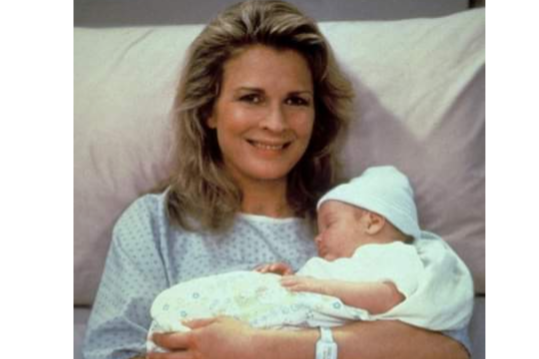
In 1992, vice president Dan Quayle publicly criticized Murphy Brown for “mocking the importance of fathers” and glorifying single motherhood. This prime-time sitcom, centered on a successful TV journalist, became a cultural flashpoint, touching off a national debate about family values, career women, and the role of government in social behavior.
Rather than backing down, Murphy Brown’s writers responded in a segment titled “Dan Reverberates”, turning Quayle’s comments into comedic fodder. The show leaned into the conversation, maintaining its popularity and endearing itself to viewers who appreciated its sharp take on current events.
11. Beavis and Butt‑Head
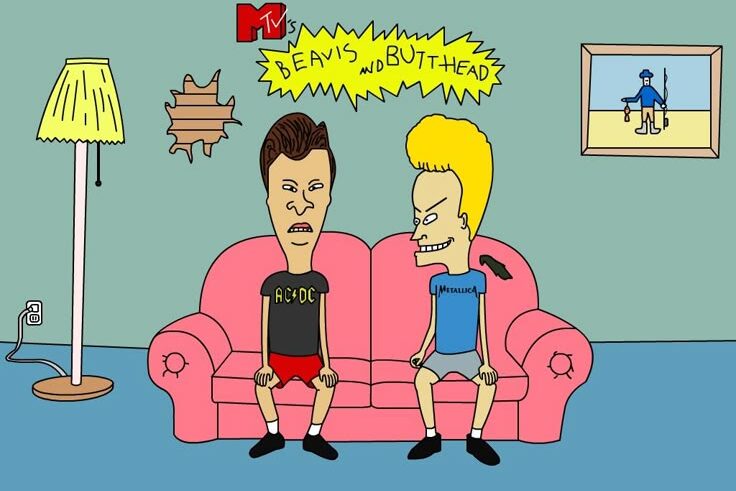
Beavis and Butt‑Head debuted on MTV in 1993, showcasing two clueless teens whose misadventures included vandalism, crude humor, and, notably, pyromania. In the Season 3 premiere, “Comedians” (aired September 6, 1993), Beavis accidentally sets a comedy club on fire while imitating Jokers doing stunts, and a month later, an Ohio mother blamed the show when her young son started a tragic trailer fire that killed his sister. MTV responded by pulling fire references, shifting the show to a late-night slot, and adding disclaimers. Later, the incident was discredited as the family didn’t have cable; the child admitted years later he had never even seen the show.
But the reaction had a lasting impact: MTV edited the episodes, changed airtime, and the creators even joked around censorship with alternate words like “fryer.” Despite this, the show remained iconic for its satirical lens on youth culture, so much so that revivals in 2011 and 2022 were welcomed, and it’s credited with influencing edgy adult animation.
12. The Golden Girls
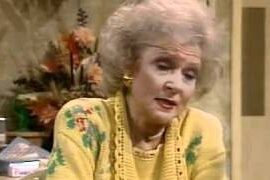
The Golden Girls (1985–1992) was groundbreaking for featuring four mature women living together in Miami while tackling serious social issues, with humor and sensitivity. In 1989, the episode about HIV/AIDS (“Hello, Darling”) had Rose waiting for results and confronting misinformation about AIDS, showing deep respect for the subject during a time of stigma. Similarly, a Season 3 storyline dealt with same-sex marriage, where the show treated LGBTQ+ themes with warmth, some viewers even credit it as ahead of its time on gay rights.
Despite its acclaim, the series did face criticism. When Dorothy’s son planned to marry a Black woman, one episode used mud masks that some mistook for blackface, leading Hulu to briefly pull it in 2020 before restoring it with context. The show balanced social relevance with comedic charm, and while pushback existed, it remains beloved and praised for normalizing difficult conversations about AIDS, equality, and aging.
13. Diff’rent Strokes

Diff’rent Strokes aired from 1978–1986 and surprised audiences by weaving intense storylines, like child abuse, molestation, drug use, and racism, into a family sitcom format. One episode, “The Bicycle Man,” explored sexual exploitation when a friendly bike shop owner targets the boys, sparking national discourse on how children can be victimized, even by people in positions of trust.
The show’s willingness to spotlight such weighty issues drew both praise and concern. Parents appreciated the series for starting tough conversations, but others felt it might be too emotionally heavy for a sitcom. Ultimately, the show reinforced that family television could be a platform for awareness, though it risked unsettling viewers expecting lighthearted entertainment.
14. The Jeffersons

Spinning off from All in the Family, The Jeffersons (1975–1985) tackled race, class, and upward mobility head-on. Featuring George and Louise Jefferson, an affluent Black couple in a previously white neighborhood, it used humor to explore racism and suburban tension. While many applauded its frankness, it also drew angry letters from viewers uncomfortable with its jokes on race and stereotyping.
The series balanced biting social commentary with warmth. Its success, 13 seasons long, helped normalize Black-led sitcoms and opened doors for future shows to blend comedy with incisive cultural critique. Both critics and fans recognized it as smart entertainment that gently pushed the status quo.
15. Three’s Company
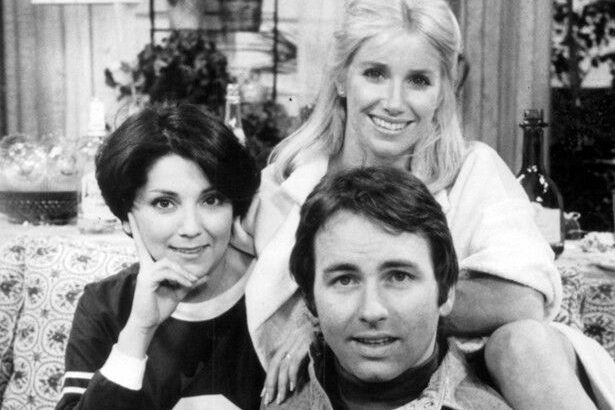
Three’s Company (1977–1984) was built on sexual farce, centered around Jack pretending to be gay so he could live with two single women. Conservative and religious groups quickly condemned the show, uncomfortable with its bedroom humor and implied promiscuity. Some affiliates even considered refusing to air certain episodes to protect local family standards.
Despite the negative press, Three’s Company became a ratings hit thanks to its playful misunderstandings and romantic banter. It showed that audiences could enjoy lighthearted takes on gender and sexuality, even if it upset some gatekeepers. The controversy faded as the show leaned into its comedic strengths, leaving behind a legacy of sitcoms willing to play with taboo themes.
This story 15 TV Shows That Sparked Major Controversy, And You Might’ve Forgotten Why was first published on Daily FETCH


